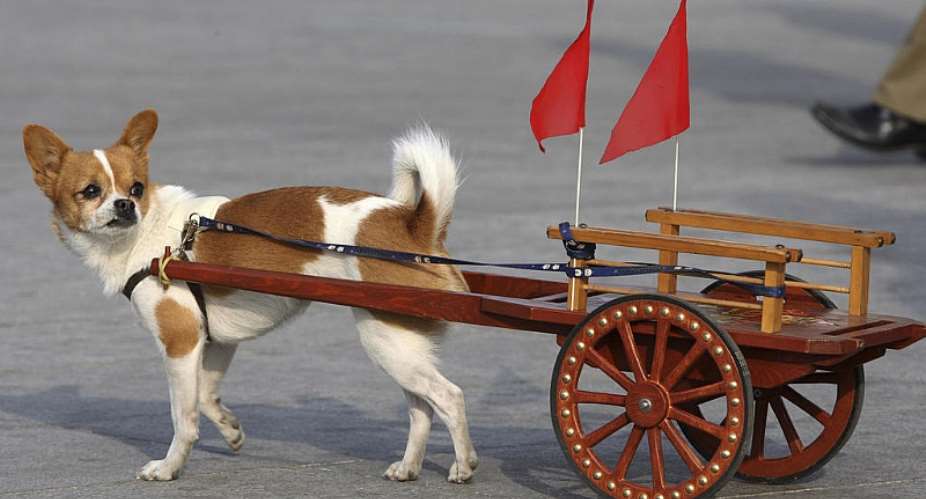As part of a massive attempt to reorganise China's food markets, the Ministry of Agriculture has published new “catalogue” with what can be on the market, and what cannot. After research showed that the Covid-19 pandemic stemmed from wet market in Wuhan, the Chinese government shut them down. The latest casualty in the struggle against the virus: dog meat.
The measures are the latest steps in China's fight against the spread Covid-19.
“Gourou”, or “dog meat”, was a long time feature in Chinese restaurants. With an excess of straw dogs in the countryside, they were an easy catch. And for people not accustomed to the somewhat pungent taste of the meat, a cook would add hot spices, or serve it in a soup.
But as of last week, it will no longer be easy to find the canine cut on the menu.
According to new regulations issued by the Ministry of Agriculture on 29 May, dogs are now to be classified as “pets”.
“With the advance of human civilisation and public concern regarding animal protection, dogs have been categorised from 'livestock' to 'domestic animals'," reads a notice on the ministry's website.
“Dogs have a long history of domestication," said a ministry spokesperson during a press conference. "In the past, they were mainly used in nursing homes and hunting and grazing. Now dogs have a more diverse use, providing companionship, helping police in search and rescue missions, or as guide dogs.”
While in the past, a dog would often have found itself in the wok, today they “have a closer relationship with humans”, according to the ministry, which noted that “dogs are not regarded as livestock by UN Food and Agriculture Organization” either – and even in Korea, where dog meat is part of the traditional menu, it is not on the livestock index.
Spending power
It was only in the 1990s that dogs started to become popular as domestic animals, a trend that went together with the increasing spending power of China's middle class.
China's taste for tasting “exotic” animals jumped into the limelight when Chinese researchers pointed at the possibility that the Covid-19 pandemic may be traced back to animals nurtured at a wet market in Wuhan.
Wet markets in China always played on the imagination of tourists and writers alike. "The Chinese could have written The Endangered Species Cookbook," writes author Paul Theroux in his 1988 travelogue Riding the Iron Rooster.
“Certainly killing tigers for the rejuvenating powers of their blood and bones, slaughtering elephants for their ivory and rhinos for their horns, [and eating] owls, turtles, herons, snakes and the celebrated Heilongjiang dish of bear's paw seem diabolical in this green age.”
Four delicacies
Yet the writer found himself in the famous Qingping wet market in Guangzhou. He describes how he bought an owl but, not capable of killing or eating it, he released it from the window of his train when he continued his travels up north.
China's kitchen used to pride itself for its “four delicacies,” bear claw, birds nest, shark fin and monkey brains, where a live monkey would have its scull opened and guests would be encouraged to spoon out the grey cells of the animal.
Most, if not all of these animals are now protected. For them, as well as for dogs, the Covid-19 pandemic, may well prove a blessing in disguise.
Game changer
The Humane Society, an international NGO working for animal rights, dubbed the new regulations a "potential game changer" and said they were "incredibly encouraging".
"This is the first time the national government in China has explicitly explained why dogs...are excluded from the official livestock list, stating that these are companion animals and not for eating," said international director Wendy Higgins.
The Humane Society estimates that around 10 million dogs are killed each year for the country's dog meat trade.





 We’ll no longer tolerate your empty, unwarranted attacks – TUC blasts Prof Adei
We’ll no longer tolerate your empty, unwarranted attacks – TUC blasts Prof Adei
 Bawumia donates GHc200,000 to support Madina fire victims
Bawumia donates GHc200,000 to support Madina fire victims
 IMF to disburse US$360million third tranche to Ghana without creditors MoU
IMF to disburse US$360million third tranche to Ghana without creditors MoU
 Truck owner share insights into train collision incident
Truck owner share insights into train collision incident
 Paramount chief of Bassare Traditional Area passes on
Paramount chief of Bassare Traditional Area passes on
 Two teachers in court over alleged illegal possession of BECE papers
Two teachers in court over alleged illegal possession of BECE papers
 Sunyani: Victim allegedly shot by traditional warriors appeals for justice
Sunyani: Victim allegedly shot by traditional warriors appeals for justice
 Mahama vows to scrap teacher licensure exams, review Free SHS policy
Mahama vows to scrap teacher licensure exams, review Free SHS policy
 Government will replace burnt Madina shops with a new three-story, 120-store fac...
Government will replace burnt Madina shops with a new three-story, 120-store fac...
